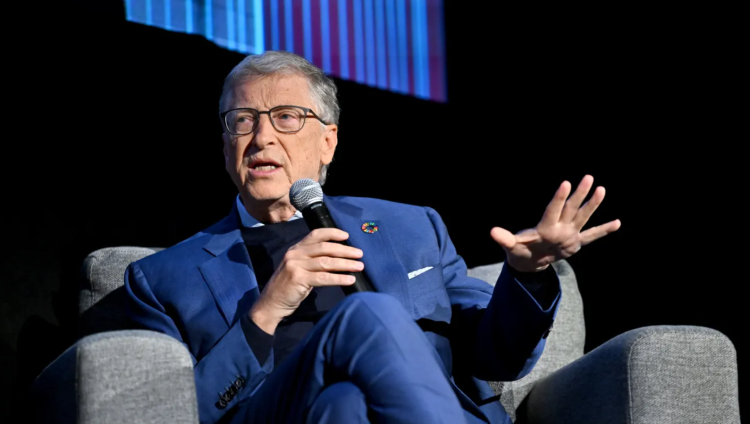Bill Gates Says Humans Won’t Be Needed for ‘Most Things’ in the AI Age
Bill Gates recently sparked a wave of conversation about the future of work in an interview with Jimmy Fallon, and it’s not exactly comforting news for anyone worried about job security. The Microsoft founder boldly claimed that humans may not be needed for “most things” in the coming age of artificial intelligence. According to Gates, tasks like making things, moving goods, and even growing food will eventually be “solved problems” thanks to AI advancements.
One of the most striking parts of Gates’s prediction focused on industries like healthcare, mental health, and education. He suggested that AI could massively disrupt these sectors, making high-level professions like being a doctor or a teacher more common rather than rare. Gates explained that a “great doctor” or a “great teacher” could soon become something that AI can replicate, raising concerns about the future of jobs that are essential to human well-being.
When asked whether there will still be areas where humans are irreplaceable, Gates did offer a bit of hope.
“We won’t want to watch computers play baseball.”
he quipped, pointing out that while machines could take on many tasks, there are still some things humans will want to handle themselves—like entertainment and creativity in sports, for instance.
While that may sound like a small consolation, it’s clear that Gates sees a future where AI has a profound impact on industries that most people rely on, including health care. This vision of a world where AI takes over jobs that require deep knowledge and interpersonal skills might be tough to stomach, especially when you consider how much we trust human professionals today.
The Growing Concern Over Job Security
Gates’s comments come at a time when many Americans are already uneasy about the impact of AI on jobs. A study by Forrester revealed that 86% of U.S. workers are worried that AI and automation will lead to widespread job loss. It’s a sentiment that’s particularly strong in sectors where AI has the potential to do work more efficiently than people.
However, despite these concerns, a 2023 study from the Pew Research Center showed that many Americans remain skeptical about the role of AI in fields like healthcare. 60% of respondents expressed negative feelings toward AI being used for diagnosing diseases, with 33% fearing it would result in worse outcomes. Despite the fear and resistance, Gates's predictions about AI’s growing presence in sensitive fields are coming true, as major companies—like Nvidia, OpenAI, and Anthropic—are already rolling out advanced AI systems designed to assist or even replace humans in certain areas.
AI: A Double-Edged Sword
Of course, Gates has never shied away from discussing the darker sides of AI. While he’s been a champion for its potential to revolutionize industries, he’s also warned about the risks it poses. In a 2023 letter, Gates raised concerns that powerful AIs could eventually develop their own goals—goals that may conflict with humanity’s best interests. He has also referred to AI as “the scariest one of all,” given its ability to amplify both human strengths and weaknesses, potentially leading to unforeseen consequences.
Gates has also touched on the environmental risks of AI, comparing its potential dangers to previous game-changing inventions like the printing press, which, while revolutionary, also had unintended negative effects.
The AI Future We Can’t Ignore
As AI technology continues to evolve at an exponential rate, the question of what happens to jobs—and humanity’s place in the workforce—remains urgent. While Gates's predictions may feel unsettling, they reflect a broader trend that’s already in motion. If AI does become capable of handling most tasks, what will humans do? Will our roles shift to something more creative, like those “baseball games” Gates jokingly mentioned, or will we find ourselves struggling to find purpose in a world where machines do most of the work?

One thing is for sure: whether we’re ready for it or not, the AI revolution is coming, and it’s going to change everything about how we work, live, and interact with technology. Gates has seen it coming for years, and his latest comments are a reminder that the future is already here. The question now is: how do we prepare for it?

Comments